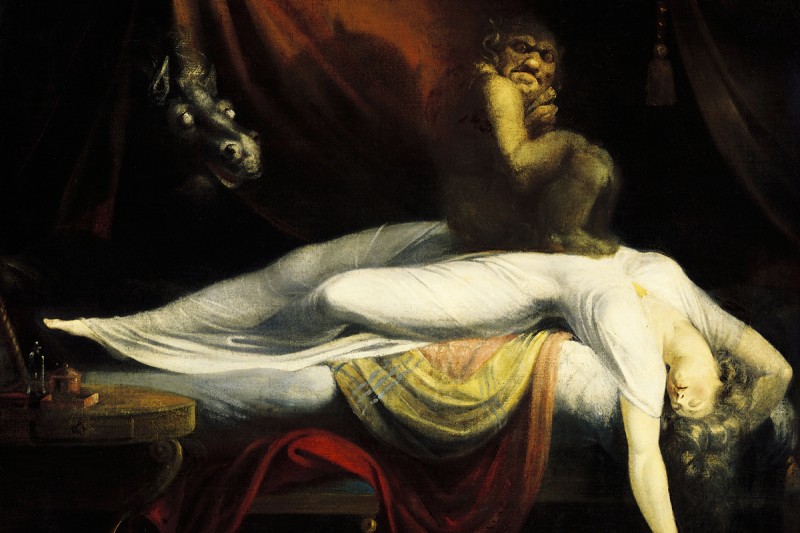
Do you ever find yourself jolting awake in the middle of the night, heart racing and palms sweaty, all because of a terrifying dream? Scary dreams, commonly known as nightmares, have intrigued and puzzled humans for centuries. From supernatural monsters to falling from great heights, these unsettling experiences can leave us feeling uneasy long after we wake up. In this article, we'll dive into the fascinating world of nightmares, exploring their possible causes, the science behind them, and ways to mitigate their impact on our sleep. So, buckle up as we embark on a journey to uncover the secrets behind why scary dreams come. Nightmares have captured human imagination since time immemorial. These vivid and distressing dreams have intrigued scientists, psychologists, and storytellers alike, giving rise to various theories about their origins and meanings.
2. What Are Nightmares?
Nightmares are intense and distressing dreams that often evoke feelings of fear, anxiety, and unease. They are characterized by their ability to awaken us from sleep and linger in our minds, leaving a lasting emotional impact.
3. The Psychological Perspective
Psychologists believe that nightmares could be a manifestation of suppressed fears, anxieties, or traumas. These dreams might serve as a way for the mind to process and confront unsettling emotions that we might avoid during waking hours.
4. Unraveling the Brain's Role
Recent studies have delved into the neurological aspects of nightmares. The brain's intricate web of neural networks, including the amygdala and hippocampus, could play a significant role in generating and intensifying the emotions experienced during these dreams.
5. The Impact of Stress and Anxiety
High levels of stress and anxiety in daily life can significantly contribute to the frequency and intensity of nightmares. Understanding stressors and finding healthy coping mechanisms might alleviate their occurrence.
6. Diet and Nightmares: Is There a Connection?
Surprisingly, dietary habits can also influence nightmares. Consuming certain foods close to bedtime, like spicy dishes or caffeine, might disrupt sleep patterns and lead to more vivid dreams.
7. Sleep Disorders and Nightmares
Sleep disorders, such as sleep apnea and insomnia, are closely linked to nightmares. Addressing these disorders through medical intervention and lifestyle changes can positively impact the quality of sleep.
8. Childhood Nightmares: Understanding the Innocence
Children often experience nightmares as a normal part of their development. These dreams might stem from their struggles to differentiate between reality and imagination.
9. Cultural Influences on Dream Themes
Cultural beliefs and stories can influence the themes of nightmares. What might be terrifying in one culture could be considered normal in another, highlighting the subjective nature of fear.
10. Lucid Dreaming as a Coping Mechanism
Some individuals have mastered the art of lucid dreaming, where they can take control of their dreams. This technique has shown promise in transforming nightmares into less frightening experiences.
11. Tips for Preventing Nightmares
Simple lifestyle changes, such as maintaining a consistent sleep schedule, practicing relaxation techniques, and keeping a dream journal, can contribute to a decrease in the frequency of nightmares.
12. Managing the Aftermath: Dealing with Sleep Disruption
Waking up from a nightmare can disrupt sleep patterns. Techniques like deep breathing and mindfulness can help calm the mind and facilitate a quicker return to restful sleep.
13. Nightmares vs. Night Terrors: What's the Difference?
Nightmares and night terrors are often used interchangeably, but they are distinct experiences. Night terrors are characterized by intense fear and screaming episodes during sleep, usually affecting children more than adults.
14. The Evolutionary Perspective
Nightmares might have served an evolutionary purpose, preparing our ancestors to be vigilant against potential dangers. In today's context, however, these dreams can be seen as remnants of our primal instincts. Scary dreams, while unsettling, offer a window into our subconscious minds. They can be seen as messages from within, encouraging us to address our fears and anxieties. By understanding the various factors contributing to nightmares, we can work towards enjoying more peaceful and restorative sleep.
Aircraft Safety Knowledge: Ensuring Safe Skies for Every Journey
Humans teaching robots basics of life can soon be friends
Nvidia Unveils Game-Changing AI Chip, Revolutionizing Large Language Models